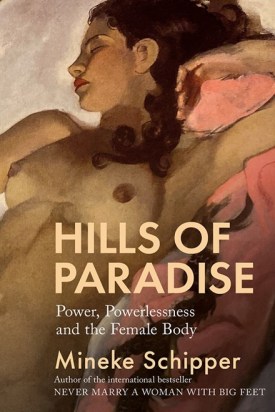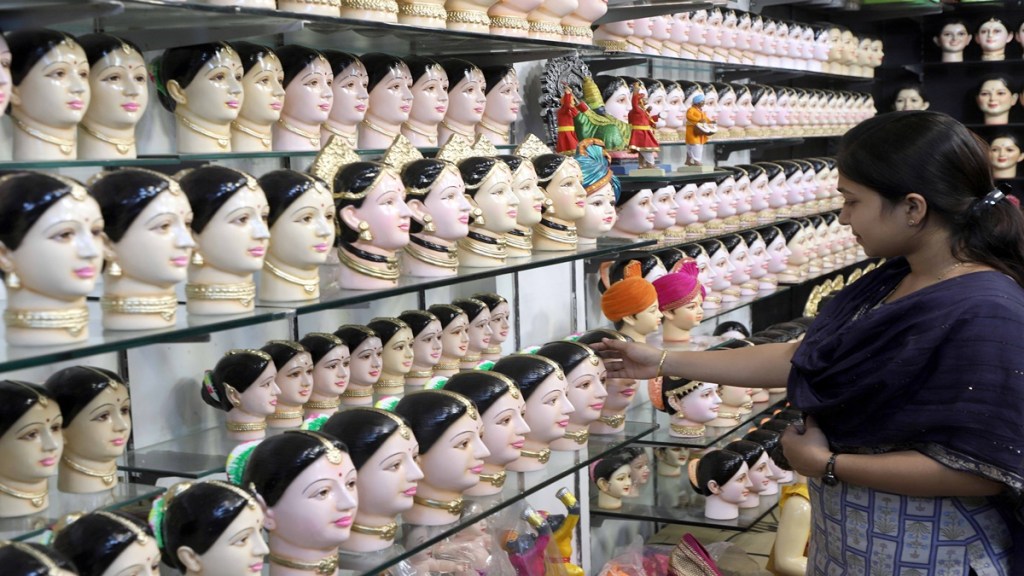Through the course of history men have looked at the female form with a complex gaze which ranges from joy and delight to insecurity and fear. Numerous men spend a large part of their lives trying to decode women who evoke erotica and mystery, and also threat and repulsion. They relish her body, but also look for methods to negotiate with it and control it.
Dutch author Mineke Schipper’s latest book, Hills of Paradise: Power, Powerlessness and the Female Body, examines the ambiguous feelings men have “towards indispensable, coveted, reviled and envied female body parts”, and how these feelings have shaped the life of women. The sentiment ensured that if on the one hand vulva was celebrated as “the primordial gate” in several ancient civilisations, there were also myths about the “goddess of obscenity”.
The book begins with an insightful analysis of the turn taken by various ancient cultures when their tales that had been narrating accounts of females as creators began granting the status to males. Various myths across the planet proposed the idea of Mother goddess and Mother Earth, with females being the earliest deities. Hunting, for instance, was largely a male activity, but the god of hunting and even that of agriculture was often a female character.
As the male authority began to grow in societies, female deities stood dethroned. “Gods inevitably acquire human traits, and over time, the basic creative and life-giving functions of mythical goddesses are remarkably taken over by male gods,” Schipper writes. Various cultures soon came to have male deities who could procreate children on their own. Another shared practice across ancient cultural cultures was to reduce women to a mere carrier of fertility. Note its echoes when one now hears shrill slogans by religious leaders who demand more children to counter the adversary.

The practice of infibulation is often believed to be prevalent only in primitive cultures. Schipper writes that in 19th-century Europe and in the US, the clitoris of women was “sometimes removed to prevent masturbation and perceived insanity”. Not many perhaps know that the surgery was conducted in the US until the 1960s “as a treatment of hysteria, erotomania and lesbianism”.
The book has rich anecdotes from various cultures and countries which Schipper gathered from her travels across the world. She gives vivid instances of how women were denied their rights in various cultures and the discrimination they faced. While men travellers were always extolled, it wasn’t so for women. “A son who never leaves home always thinks that his mother’s is the loudest fart,” says a Kenyan Gikuyu proverb. Whereas a Malaysian saying goes: “A travelled woman is like a garden trespassed by cattle.”
The desire to dominate is reflected in several proverbs across cultures. Most Indians are familiar with Tulsidas’s controversial verse that drums, animals and women, all deserve to be beaten. A West African proverb says, “Beat your wife regularly, if you don’t know why, she will know why”. A Rajasthani saying goes, “The nails of a cart and the head of a woman only work when they are hit hard”, while in Germany, they say, “Women and cutlets, the more you beat them, the more succulent”.
Underlying these proverbs was a desire to control women, as these cultures came to propose that “female power had to be curbed because women were capricious, unjust and demanding”. What few men want to admit that their anxiety towards women largely stems from their own sexual insecurity. The fear of impotency pushes them to find ways to tarnish women, and thus you get depictions of women with vaginal teeth, and myths in which women deprive men of their most vulnerable sexual organ. The Maori tradition of New Zealand goes on to call the vagina “the house of death”.
Her body and her sexuality thus became the battleground over which men wanted to stamp their authority. The demands of virginity, and the distorted portrayal of her body is a logical consequence of the cultural project men have undertaken through the centuries. This book holds a mirror to human civilisation.
Title: Hills of Paradise
Author: Mineke Schipper
Publisher: Speaking Tiger
Pp 312, Rs 599
Ashutosh Bhardwaj is a writer and journalist








